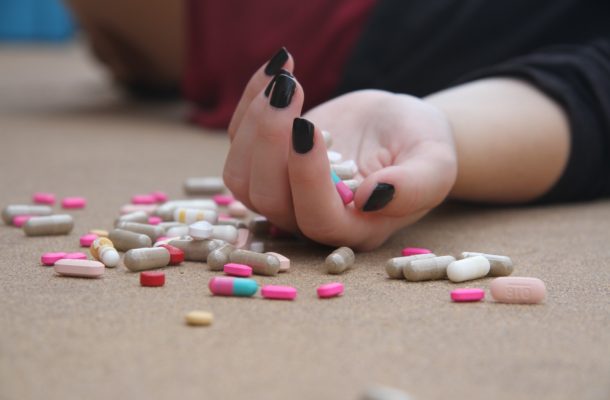Pursue drug harm reduction, not a punitive response

More than 35 of Australia’s social service organisations and policy leaders will put drug harm reduction squarely on the agenda at a high-level Roundtable meeting convened by Australia21 in Melbourne today.
Following from the launch of Australia21’s third drug law reform report last year, Can Australia respond to drugs more effectively and safely?, the participants will address the evidence that Australia’s prohibition and law enforcement approach is not reducing illegal drug use, but is instead causing many adverse outcomes across our communities.
Australia21’s Emeritus Professor Bob Douglas, who will facilitate the Roundtable, notes that “Arrest and prosecution often involves the loss of employment, housing and family and community support. This can spiral into further crime, but also increase family homelessness, domestic violence, child protection interventions, mental health issues and suicide rates”
“Meanwhile, prohibition and the threat of criminal penalties drives drug users away from the help they need and puts the production, distribution and control of illicit drugs into the hands of criminals.”
Social service providers have been witnessing a rise in the human and financial costs of the current policies for individuals, families and the nation as a whole, according to Laurence Alvis, who leads alcohol and other drug services in Melbourne for Uniting Vic,Tas.
“There is no question that Australia’s drug policy settings create and worsen social problems beyond the drugs field. Uniting regularly deals with people experiencing multiple social issues in our alcohol and other drug programs. Our experience is that drug policy can also have a negative impact on their experiences of issues such as mental health, family violence and homelessness.”
Mr Alvis is concerned that the current policy of allocating 60% of Australian government drug budgets to policing and prisons has failed to produce improvements, especially as highly effective treatment and harm reduction strategies have been chronically underfunded.
“By prioritising treatment, we could reduce the negative impact of focusing on criminalisation rather than harm reduction. We see the failure of the current approach in the length of waiting lists for services like ours. It means that service funders focus on short episodes of treatment, when we know that treatment over a longer term is more likely to produce lasting outcomes.”
International evidence from countries including Portugal, where drug use has been redefined as a health and social issue rather than one of criminal justice, shows a change in approach can produce better social outcomes more quickly and at lower cost, potentially removing the need for downstream interventions and related spending.
The extent to which adverse social conditions and disadvantage actually increase problematic drug use also needs far more research in Australia.
The Roundtable will consider how multi-sectoral collaboration might encourage changes to federal and state policy settings that would support, instead of impede, the stated aim of Australia’s National Drug Strategy: ‘To build safe, healthy and resilient Australian communities through preventing and minimising alcohol, tobacco and other drug-related health, social, cultural and economic harms among individuals, families and communities.’
“It is clear the prevalence and seriousness of a wide scope of social problems in diverse sectors would be reduced through better responses to the use and abuse of illegal, pharmaceutical and other drugs, including alcohol and tobacco,” says former Australian Federal Police Commissioner Mick Palmer, an Emeritus Director of Australia21.
“The War on Drugs approach was well intended but failed disastrously in Australia and other countries. While unregulated manufacture and trafficking should remain serious criminal offences, Australia should adopt a more rational, more cost-effective, evidence-based and human rights approach, including decriminalisation of personal possession of drugs and better treatment options. We can’t punish people into getting better.”
The national Roundtable is being held in Victoria’s Parliament House, where the state’s report on the Parliamentary Drug Law Reform Inquiry is due to be delivered this month.
Deborah Rice is the Director and Communications Manager of Australia21, a small not for profit organisation which seeks to create new frameworks of understanding about the strategic issues facing us in the 21st century.















Alan Stevenson
March 24, 2018 at 3:13 pm
Having lived and worked with people at all levels of society I have noticed that some folk are attracted to drugs and some are not. Of those who are attracted, some can cope with the after-effects while others rely more and more on the ‘ups’. Of these some begin to use stronger drugs, graduating to the hard stuff. I have not noticed anyone worrying about what the drug of choice is doing to their bodies or to those around them. From this it appears that unless a faulty gene can be found and rectified there is not much we can do except clean up after the event.
Amelia
March 24, 2018 at 4:52 pm
I’ve never really understood drug taking, going for a run or having sex makes you feel much better than any drug, costs nothing and is good for you too! The removal of stigma around it may help treatment but I fear that normalising the smoking of weed and pumping lots of ill disciplined kids full of speed because it’s fashionable to have ‘ADHD’ isn’t going to end well. Happiness is a byproduct of activity and helping others, it can’t be found in a pill or pursued as an end in itself. Drugs may begin as an escape from problems, but they just cause one more, often the biggest of all.